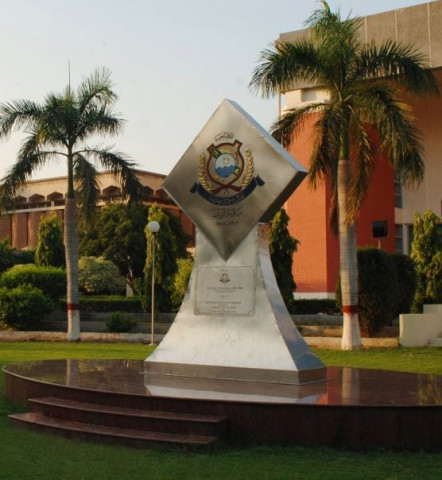Pakistan urged to tap global seedless citrus market
Agriculture university will plant seedless citrus in five districts.

UAF has developed a high-yielding canola oil seed named UAF-11 with the help of which the crop matures in four months with more oil content. PHOTO: APP/FILE
This issue came up for discussion in a meeting of the board of directors of Endowment Funds Secretariat, University of Agriculture Faisalabad (UAF) here on Wednesday. The meeting was presided over by UAF Vice Chancellor Professor Dr Iqrar Ahmad Khan.
In the meeting, a UAF project was approved under which seedless plants would be cultivated on the orchards of farmers for demonstration in five districts of Punjab including Faisalabad, Sargodha and Toba Tek Singh. Ten farmers will be selected from each district.
UAF Vice Chancellor Dr Iqrar Ahmad Khan underlined the need for technology transfer among farmers, which would help in increasing per acre production in the country.
Talking about edible oil, he expressed concern that Pakistan was importing edible oil worth a hefty $3 billion and called for promoting oilseed production by creating awareness among farmers.
UAF has developed a high-yielding canola oil seed named UAF-11 with the help of which the crop matures in four months with more oil content.
Talking about Basmati rice production, he argued that paddy crop needed high quantity of water, which was scarce in Pakistan and increased the cost of production. He called for a shift to other high-value crops like oilseed.
Farmers Associates Pakistan CEO Afaq Ahmad Tiwana stressed that transfer of technology among farmers would ensure food security in the country. He suggested developing new high-yielding varieties of crops, saying food security was the main area of concern that must be addressed by taking tangible steps.
Ayub Research Director General Dr Noorul Islam said average wheat production in Punjab was 28 maunds per acre, which vary from area to area as in Chakwal the production was 10 maunds per acre and in Bhakkar 16 maunds per acre.
He asked farmers to grow high-value crops keeping in view the climate and rain patterns, country’s needs and the international market.
Published in The Express Tribune, July 11th, 2013.
Like Business on Facebook, follow @TribuneBiz on Twitter to stay informed and join in the conversation.



















COMMENTS
Comments are moderated and generally will be posted if they are on-topic and not abusive.
For more information, please see our Comments FAQ